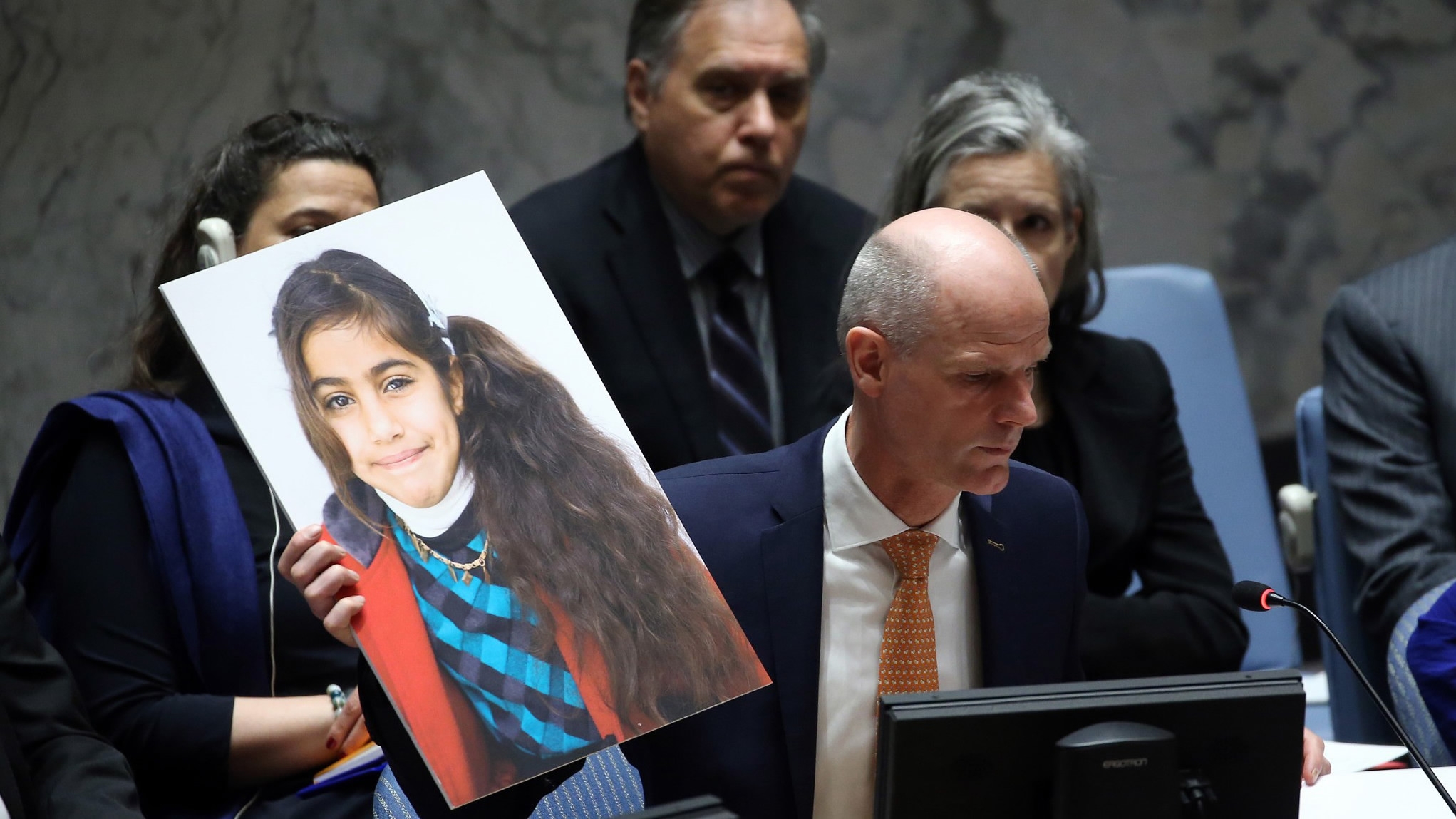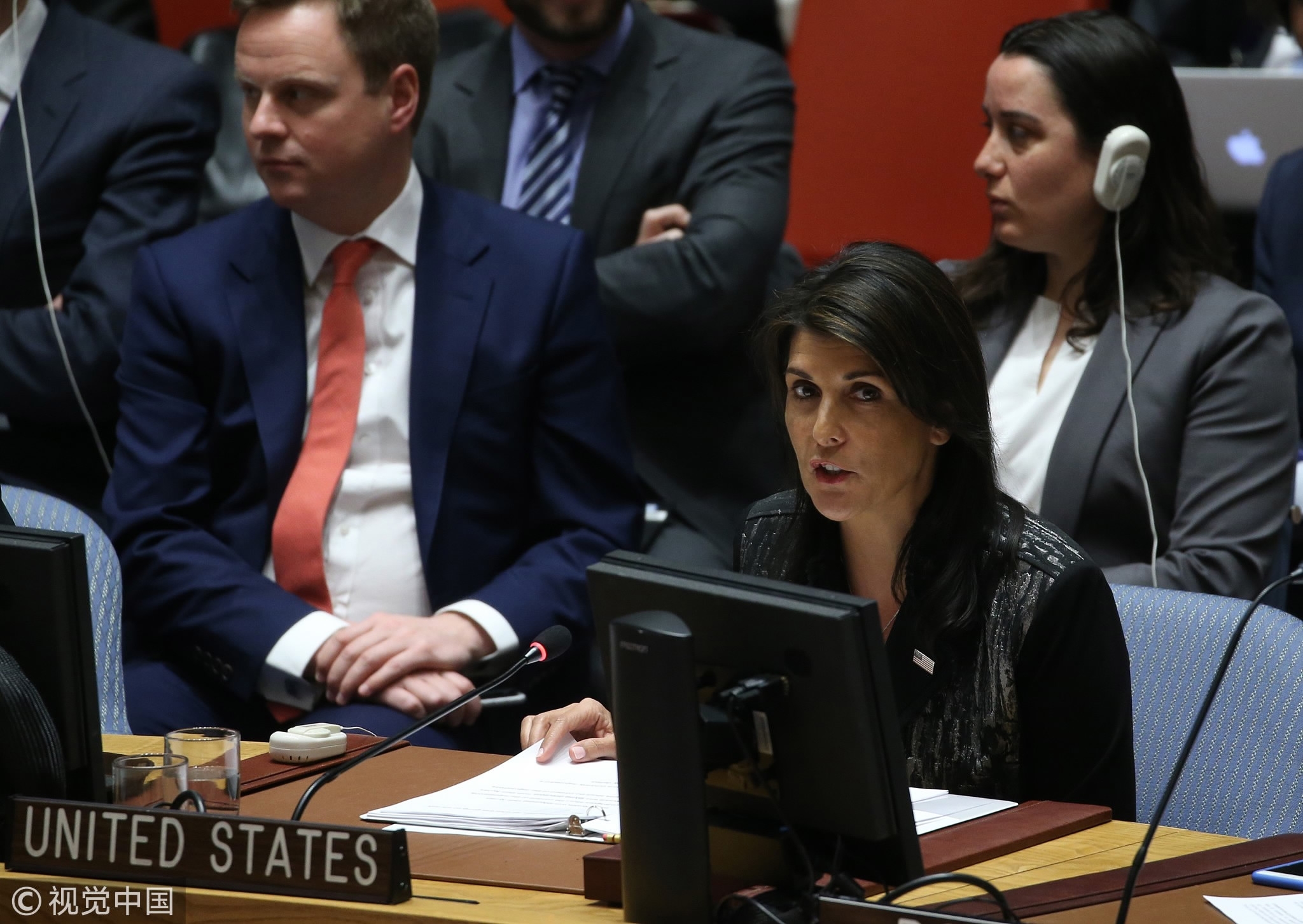
Opinions
09:59, 31-Mar-2018
Opinion: Will the US really leave Syria?
Guest commentary by Wang Jin

US president Donald Trump insisted that American forces should be pulled back from Syria in a speech to industrial workers in the state of Ohio on Thursday, and lamented that the US government had wasted more than 7 trillion dollars in the Middle East. According to Trump, “We’ll be coming out of Syria, like, very soon. Let the other people take care of it now.”
The US has been one of the major players in the Syrian civil war. On the one hand, Washington has been a major supporter of several Syrian political opposition groups. The Friends of Syria Group, the major international platform for recognizing and supporting the political opposition groups in Syria, is supported and coordinated by the US. On the other hand, several Syrian opposition military groups were supported and equipped by US intelligence and military departments. For example, many Syrian “moderate Islamic groups” received weapons and money from a supporting program dubbed as Timber Sycamore, which was coordinated and financed by the CIA.

Nikki Haley, US ambassador to the United Nations, gives a speech during a UN Security Council meeting on Syria at UN Headquarters, March 27, 2018. /VCG Photo.
Nikki Haley, US ambassador to the United Nations, gives a speech during a UN Security Council meeting on Syria at UN Headquarters, March 27, 2018. /VCG Photo.
Trump’s announcement of the withdrawal of military power from Syria comes from two considerations.
On the one hand, the Syrian military opposition groups that Washington once supported with millions of dollars proved to be weak and unreliable. The Obama administration hoped to encourage and foster the “moderate opposition groups,” especially the “Free Syrian Army” (FSA), inside the Syrian battlefield and believed those “moderate” militants might become the backbone power for the future Syria reconstruction once the Assad regime is overthrown. However, after years of training and equipment, FSA militants either were defeated by Syrian government forces or were defeated and integrated with their “Made in US” weapons into other Syrian Islamic radical groups. In August 2017, against this embarrassing backdrop, Trump terminated the Timber Sycamore program.
On the other hand, the major concern for Trump’s strategy – to clear the presence of Islamic State (IS) in Syria – has been largely achieved. Trump has stressed several times that his major concern in Syria is to defeat the Islamic radicalism represented by IS in Syria and Iraq. Under Trump’s strategy, Syria is under Russia’s sphere of influence. During the past years, with the brave military victories against IS militants in Syria achieved by both Syrian Kurds led by “Democratic Union Party” (PYD) and Syrian government forces, the IS presence in Syria has vanished. Therefore it is understandable for Trump to announce a withdrawal of the US from Syria.

March 28, 2018: A Syrian child roaming the streets in the town of Hazzeh in Eastern Ghouta, on the outskirts of the Syrian capital Damascus. /VCG Photo.
March 28, 2018: A Syrian child roaming the streets in the town of Hazzeh in Eastern Ghouta, on the outskirts of the Syrian capital Damascus. /VCG Photo.
However, Washington’s strategy in Syria is still implicit and full of ambiguities. On the one hand, Trump’s determination of withdrawing military forces out of Syria cannot be equated with “giving up” Syrian opposition military and political groups in Syria. The PYD in the east of the Euphrates River is still protected by the US, and are still receiving military support and training from the Americans. As the almost only reliable “opposition group” for Washington in Syria, it is still necessary for the US to keep close ties with the PYD to not only prevent the re-emergence of IS and Al-Qaeda but also to monitor the influence of the regional “enemy,” Iran, in Syria.
On the other hand, Trump’s announcement of “coming out” from Syria might not mean that Washington will suspend assistance and support to Syrian opposition parties and militant groups. Trump’s announcement over Syria should be viewed as a promise to refocus on US internal affairs. Trump complained before he became president that the US has spent too much money for its alliances, especially in the Middle East. However, pulling out of Syria also means possible friction with, and opposition from, its Middle East allies, such as Saudi Arabia and Israel, who have been eagerly trying to persuade Washington to more broadly and deeply get involved in Syria to deter the “Iranian influence.” Trump needs to consult with his Middle East allies, especially his “close friend”, Israel Prime Minister Benjamin Netanyahu, about the possible “coming out” plan in Syria.
(Wang Jin is a research fellow at the Syria Research Center under Northwest University. The article reflects the author's opinion, and not necessarily the views of CGTN.)

SITEMAP
Copyright © 2018 CGTN. Beijing ICP prepared NO.16065310-3
Copyright © 2018 CGTN. Beijing ICP prepared NO.16065310-3